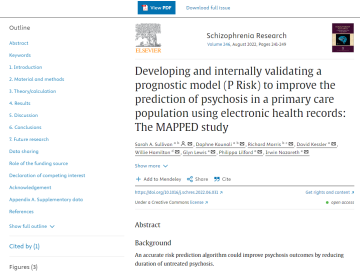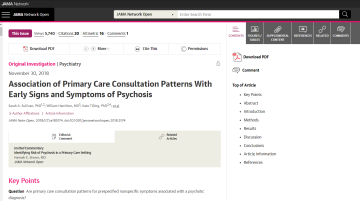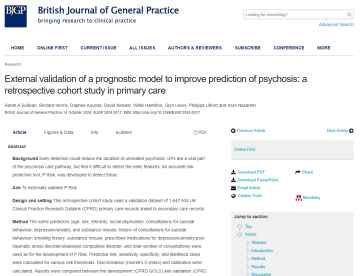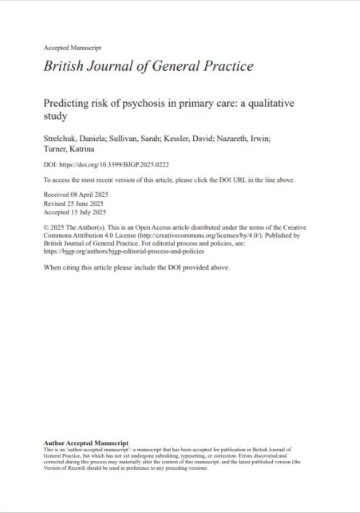Psychosis prediction in primary care
Theme Mental health
Workstream Biological interventions, trial recruitment and safety
Status: This project is ongoing
Risk prediction models use data from electronic health records to predict the likelihood of something happening in the future, such as whether a patient will develop a disease.
We have developed and validated a psychosis risk prediction algorithm (P Risk) that uses electronic health records held by GPs to predict how likely a patient is to develop psychosis. This is because the length of time between a patient experiencing the early signs of psychosis and receiving specialist care has an impact on outcomes. Therefore, quick referrals for specialist treatment are very important.
Our P Risk tool enables people at high risk of psychosis to be identified prior to the onset of illness, so that preventative measures can be put in place. We hope that our work will result in speedier referral for psychosis assessment and opportunities for prevention and early treatment intervention.
We would like to investigate whether the clinical software used by GPs could support P Risk and whether GPs would accept using it. This is because GPs play an important role in getting patients the treatment they need, but often find it difficult to identify the early warning signs of psychosis.
Project aims
This project aims to explore whether it would be feasible, acceptable and implementable for primary care providers such as GPs to use the psychosis risk prediction model developed and validated by our research team.
We are collaborating on this project with University College London.
Our work so far
We have already conducted a successful feasibility study and are now investigating whether P Risk could be implemented in GP surgeries. To do this, we are conducting a live run in 18 surgeries across Bristol, London and Oxford. The P Risk module is now available at these sites, and we will be collecting data on usage and the outcome of referrals until June 2026.

Developing and internally validating a prognostic model (P Risk) to improve the prediction of psychosis in a primary care population using electronic health records: The MAPPED study

Association of Primary Care Consultation Patterns With Early Signs and Symptoms of Psychosis

External validation of a prognostic model to improve prediction of psychosis: a retrospective cohort study in primary care
